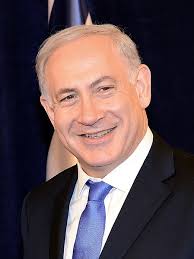Israeli High Court Hears Petitions Against New Government
Deadline for the Knesset to approve legislative changes necessitated by the unity agreement is May 7.
No matter how this next week ends, it will prove to be historic for Israel on many levels.
The Israeli High Court began Sunday and continues today to broadcast live highly controversial hearings on several petitions challenging both Prime Minister Benjamin Netanyahu continuing to lead the Israeli government and whether numerous aspects of the proposed unity government between him and his former opponent Benny Gantz are constitutional.
The petitions pit the Israeli executive, legislative and judicial branches against one another. Most observers contend that the proposed unity agreement itself actually positions the branches in opposing corners.
And, if that isn’t stressful enough on the nation’s political health and future, the fact that a new government must be formed by May 7 or voters must head for another election in August, only adds to the tension.

A former member of the Israel’s legislative branch, the Knesset, is watching the pitted battles with apprehension and from afar. Nachman Shai, an Israel Institute visiting professor through Emory University’s Institute for the Study of Modern Israel, expressed serious concerns about how the Knesset will be weakened if the court upholds the proposed power-sharing agreement between Netanyahu and Gantz.
“It will have a huge impact on the Knesset operation and activities,” said Shai, who served in the Knesset for 10 years. He pointed to the fact that the agreement would not allow no-confidence motions, the Knesset will not be allowed to vote on any legislation other than that dealing with the coronavirus pandemic for six months, and only one Knesset committee will be headed by the opposition. He said these moves are “bad for democracy.”
Shai’s concern isn’t limited to the Knesset. He charged that under the proposed unity government, the executive branch will weaken the judiciary branch.
One could say that the proposed agreement itself includes a threat to the courts. Built into the unity agreement is a stipulation that if the High Court determines that Netanyahu is unfit to form a government due to his indictment on seven counts in three criminal cases, the Knesset will automatically dissolve. That would mean new elections would have to be called, effectively annulling the court’s decision.
The indictments on bribery, fraud and breach of trust have been hanging over Netanyahu for months. His trial was to start in March. Just days before, Netanyahu’s appointed justice minister effectively closed the courts, reportedly due to the pandemic concerns. The trial has been rescheduled for May 24.

Previous petitions in the past few months challenging Netanyahu’s ability to form a government have been ignored by the High Court which stated that at the time, it was just theoretical. In fact, until Gantz changed his mind about sitting in a government under an indicted prime minister, Netanyahu was unable to gather a majority of Knesset members to forge a government.
Israeli voters have gone to the polls three times since March 2019, with all elections proving unsuccessful in producing a permanent government to replace the caretaker government headed by Netanyahu since late 2018. The May 7 deadline for agreement on the unity government marks the 21-day end of the time frame given to the Knesset by Israeli President Reuben Rivlin to form a government.
In a surprise move Thursday, Attorney General Avichai Mandelblit – who oversaw the investigation of Netanyahu and personally indicted him — told the High Court that neither the criminal charges against the prime minister nor the terms of the coalition agreement should disqualify him from forming a new government.
But the petition against Netanyahu is only one of eight before the High Court this week. Shai noted that the Court is also discussing the coalition agreement and could possible even cancel it. This would “force the Knesset to form a new coalition,” he said. Shai pointed out that the Court recently canceled other government decisions, notably the tracking of Israelis by the General Security Service, as part of the government’s fight against the spread of the coronavirus.

The 14-page unity agreement requires a rotation of the premiership from Netanyahu to Gantz halfway into a three-year term, or after 18 months. But because Gantz doesn’t trust Netanyahu to pass along the leadership baton, part of the agreement calls for a change in Israel’s Basic Laws – essentially its constitution. The agreement also shortened the term of the new government from four years to three years.
Separately, the power-sharing agreement ignored prior High Court rulings that required a legal change to eliminate an exemption from military service for the ultra-Orthodox, whose parties are expected to join the new unity government.
The first of three required readings and approvals of the proposed changes in the Basic Laws passed the Knesset last week. After probable revisions, the second and third readings are expected this week.




comments